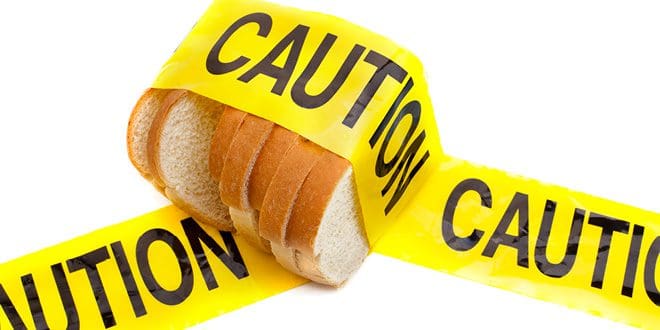By naturopath Margaret Jasinska
A study published in the journal Clinical Gastroenterology and Hepatology has shown that first degree relatives of coeliacs have an increased risk of developing an autoimmune disease.
The study included more than 84,000 first degree relatives and spouses of coeliac patients. They were compared to 430,942 controls, who did not have relatives with coeliac disease. These individuals were monitored for 10.8 years. Results showed that systemic lupus erythematosus, type I diabetes mellitus, and sarcoidosis were the most common autoimmune diseases other than coeliac disease that first degree relatives developed.
It is important to realise that coeliac disease is an autoimmune disease and the tendency to develop an autoimmune disease is heavily influenced by genetics.
Therefore, it is not too surprising that the people you share genes with are at increased risk of similar diseases. What was surprising from the study was the finding that the spouse of a coeliac is also at increased risk of getting coeliac disease or another autoimmune disease. The researchers think this is because of a similar microbiome among married couples. People in a close relationship exchange bacteria and end up having a similar composition of microbes in their intestines. Your gut bugs also play a large role in determining your state of health and which particular diseases you might develop.
Coeliac disease is an autoimmune disease triggered by the consumption of gluten. Having coeliac disease predisposes an individual to developing other autoimmune diseases, including type 1 diabetes, dermatitis herpetiformis, Sjogren’s syndrome, autoimmune hepatitis and systemic lupus erythematosus, among others.
What causes autoimmune disease?
The short answer is several things. Firstly, you cannot develop an autoimmune disease unless you have specific genes. The tendency to develop an autoimmune disease runs in families. You won’t necessarily develop the same autoimmune disease that someone in your family has; you just inherit an increased chance of getting one of them.
Just having the genes isn’t enough though. You need to be exposed to one or more environmental factors that trigger off the disease. Environmental triggers include things like an infection, specific foods that your body can’t tolerate, emotional stress, exposure to chemicals or toxic metals; pregnancy, a nutrient deficiency and others. The third critical component is a leaky gut (also known as increased intestinal permeability). So you need the genes for autoimmunity, you need to have a leaky gut and then you need an environmental trigger to start off the disease process.
Every person with coeliac disease must avoid every last trace of gluten for the rest of their life.
It is also very important to work on correcting nutrient deficiencies that result from malabsorption and healing the intestinal lining and overcoming leaky gut. This will greatly reduce the risk of developing other autoimmune diseases or immune system problems. If you have a coeliac in your family please be aware of your heightened risk of immune system problems and if you have been feeling tired and generally unwell, please see your healthcare practitioner. The earlier an autoimmune disease is diagnosed, the better the outcome.
For more information on autoimmune disease see our book Healing Autoimmune Disease: A plan to help your immune system and reduce inflammation.








Leave A Comment